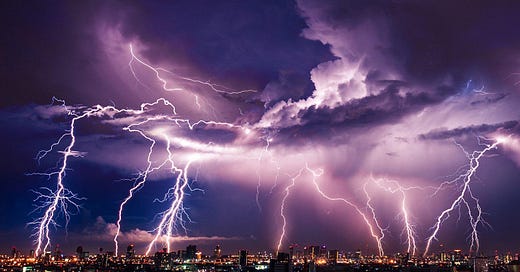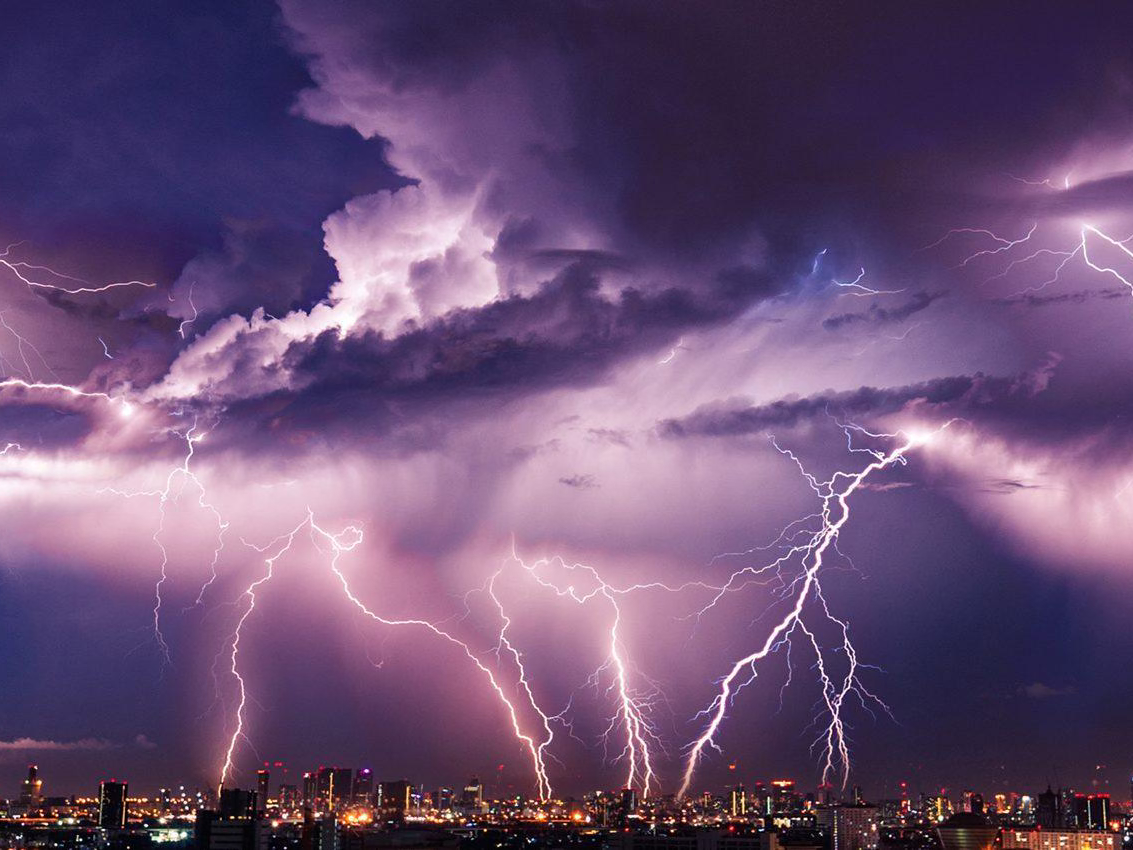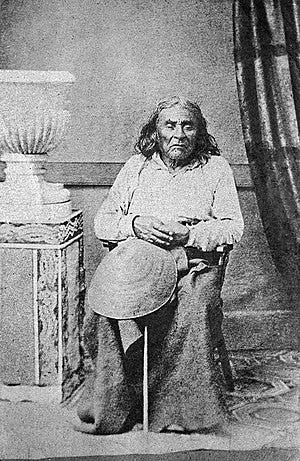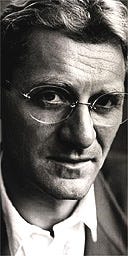POETRY CAN SPEAK DECISIVELY TO POWER: A talk by Andrew Motion UK Poet Laureate - AND - THE VOICE OF THE THUNDER - by John Shane a poster poem from 1980 - PLUS - CHIEF SEATTLE'S inspiring 1854 speech
'Tyrants fear poets: they convert particular truths into general truths, and broadcast them. Poets achievements...long outlast the statues and statutes of the powers they criticise.' Andrew Motion
CLICK ON THE BUTTON on the right hand side of the page above to listen to John Shane reading his poem & Chief Seattle’s speech that inspired it…
THE VOICE OF THE THUNDER
John Shane
Republishing here in 2025 my poem that was written in 1980, together with Chief Seattle’s great speech from 1854 - in homage to which I wrote my poem - I address both the poem and the speech to those whose extreme wealth seems to make them believe that they can - without fateful consequences for all - behave as if they personally own the whole world and can do whatever they like with everything and everyone on it.
I include Andrew Motion’s talk below in the hope that it will encourage and inspire poets everywhere to continue to create poems that will become new links in the unbroken chain of timeless poetry that - down the centuries - has always continued to talk truth to power.
JS
THE VOICE OF THE THUNDER
Who claims to rule the earth?
And who claims to own it?
Who can buy and sell
the life of the land
the fall of the rain
the call of the seabirds
the dew of
the morning?
Whose fist can punch the night?
Whose embrace can ensnare the moon?
Whose tongue can taste the evening?
Where are the title deeds to time?
Who holds a mortgage on the air?
Who grants a license to the clouds?
And by whose authority is
the silence broken?
Who dares to proclaim sovereignty
over the seasons
And who presumes to set a price
on living things?
Tell me all that has been done
in the name of freedom
all the lies told
in the name of truth
Show me all the wars
fought for peace -
And I will show you
the poverty of the many
and the power
of the few
(‘The Voice Of The Thunder’ was published as a poster-poem in 1980 by West Midland Arts, the regional body of The Arts Council of Great Britain)
The imagery and diction of my poem ‘The Voice Of The Thunder’ were inspired by the famous speech of Chief Seattle, a Suquamish Indian from the American northwest who delivered his speech in 1854 to Isaac Williams, the Territorial Governor of Washington State, as Williams negotiated with him for the sale of land that was to become the city of Seattle that was later named in the chief’s honour.
The only known photograph of Chief Seattle
THE SPEECH OF CHIEF SEATTLE
(1854)
How can you buy or sell the sky?
The land?
The idea is strange to us.
If we do not own the freshness of the air
and the sparkle of the water,
how can you buy them?
Every part of this earth
is sacred to my people.
Every shining pine needle,
every sandy shore,
every mist in the dark woods,
every meadow,
every humming insect
All are holy in the memory
and experience of my people....
If we sell you our land,
remember that the air is precious to us,
that the air shares its spirit
with all the life it supports.
The wind that gave our grandfather his first breath
also received his last sigh.
The wind also gives our children the spirit of life.
So if we sell you our land,
you must keep it apart and sacred,
a place where man can go to taste the wind
that is sweetened by the meadow flowers.
Will you teach your children
what we have taught our children?
That the earth is our mother?
What befalls the earth
befalls all the sons of the earth.
This we know:
the earth does not belong to man,
man belongs to the earth.
All things are connected
like the blood that unites us all.
Man did not weave the web of life,
he is merely a strand in it.
Whatever he does to the web,
he does to himself.
One thing we know:
Our God is also your God.
The earth is precious to Him
and to harm the earth
is to heap contempt on its Creator.
SHELLEY:
Poets are the 'unacknowledged legislators of the world'.
Wikipedia:
“The theme of poet as legislator reached its peak in the Romantic era epitomised in Shelley's view of poets as the 'unacknowledged legislators of the world'. However the concept had a long prehistory in Western culture…”
KEATS:
"…we hate poetry that has a palpable design on us"
In his talk, the full text of which follows below, Andrew Motion notes, after acknowledging Shelley’s comment about poets being the ‘unacknowledged legislators’ of the world, that John Keats cautions in one of his letters against poetry seeking to one-sidedly promote any kind of ideology:
John Keats wrote:
"…we hate poetry that has a palpable design on us", and "axioms in philosophy are not axioms until they are proved upon our pulses".
And Andrew Motion goes on to comment with regard to the extent good poetry can be didactic:
“…Poetry can speak decisively to power - perhaps most decisively to power - when it reveals truths by combining hearts with heads.
When it presents all sides of an argument and allows us to make our own decisions about what's right and what's wrong.
When it is democratic in its appeal to the imagination and our intellect.”
So how can poetry ‘speak truth to power’ ..?
Read former UK Poet Laureate Andrew Motion’s views in the full text of his talk that follows below.
link to the article on the website of The Guardian newspaper:
http://www.guardian.co.uk/books/2007/oct/04/poetry.andrewmotion?INTCMP=ILCNETTXT3487
'POETRY CAN SPEAK DECISIVELY TO POWER': The sacred duty of poets is to tell the truth about humanity whatever those in authority have to say'.
ANDREW MOTION
A talk by the former UK Poet Laureate that is as relevant today as it was when it was first published 17 years ago.
In the build-up to National Poetry Day this week, the poet laureate, Andrew Motion, spoke at a Poet in the City event in the House of Commons about the relationship between poetry and power. This is what he said.
Thursday 4 October 2007 10.18 BST
(This article is more than 17 years old)
Andrew Motion: 'The sacred duty of poets is to tell the truth about humanity whatever those in authority have to say.' Photograph: Jane Bown
Thank you very much for inviting me to speak about Poetry and Power; I'm happy to do this - especially because it means renewing my contact with Poet in the City, a terrific scheme run with wonderful energy and resourcefulness by Graham Henderson.
Graham has asked me to do three things: to say something about the relationship between poetry and power in general; to say something about the relationship between power and the post of Poet Laureate that I occupy; and to read something which has to do with the subject. That's a lot in 10 minutes, but here we go.
I'm going to get myself out of the way first.
When I was appointed poet laureate in 1999, I was told at separate meetings with the Queen and the then-prime minister Tony Blair that I "didn't have to do anything".
In certain obvious respects, this was a relief - though I have to admit, they did both say it in ways which left me in no doubt that they'd rather I did do something.
In fact I'd said yes to the job because I had a pretty clear idea of what I wanted to do.
Although most of my predecessors had interpreted their appointment as being largely honorific, with an understanding that they would write poems about events in the Royal calendar from time to time, it seemed (and still seems) to me that it needed a bit of respectful revising.
I accepted that now and again I would write royal poems, but from the outset I wanted to make them part of a pattern of poems about more widely national subjects; anything less would, I thought, look frankly odd in this day and age.
I also decided that I would try and develop a 'doing' side to the job.
Hence the poems I've written about bullying and homelessness and foot and mouth and so on - and hence too my regular visits to schools to talk and run workshops, my involvement with educational schemes such as Writing Together (which exists to get writers into schools on a more regular basis), and my creation with my co-founder Richard Carrington of the Poetry Archive (a web-based library of poets reading their own work: I can't resist telling you that we've just clocked up our millionth user).
Developing these new aspects to the laureateship has been a rewarding part of my last eight years, and I've been conscious throughout of the fact that my position has helped in all sorts of practical ways to achieve the results I envisaged.
It has meant that people in education and government and the media have been prepared to listen to me with an attention I doubt they would have shown were I not laureate, and it has been especially useful when I've had to raise money for what I consider worthy causes. (The Archive is expensive; Richard and I still spend a great deal of time fundraising). From where I stand, this is a good example of 'power' (by which I mean the position of laureate itself) being of benefit to poetry.
But has it come at a price?
Undoubtedly, in a personal sense: I don't have enough time for myself and my own writing any more.
But in a wider sense?
I would only think so if I felt that accepting the position had prevented me from speaking my mind or telling the truth as I see it.
And I don't feel that has happened.
It's probably the case that people would look askance, and recommend that I be sent to the Tower, if I wrote poems which were disrespectful towards the royal family.
So I don't write such poems - but I want to add immediately that I don't want to write them, so don't feel any sense of inhibition in this regard.
In every other respect, I've always felt able to write what I want to write, regardless of general public opinion, public taste, or government policy.
The poems I've written about the conflict in Iraq are a proof of that.
I went into this job thinking that only the most unscrupulous kind of sycophant, and only a poet who prized fame above everything, would accept the position if they understood that it involved any kind of self-censorship or even self-suppression.
It doesn't - or it hasn't for me, anyway.
This leads me to say something about the relationship between poetry and power in more general terms.
Like thousands of writers before me I have always believed that poetry is a quintessentially independent-minded and fundamentally counter-suggestive thing.
It takes orders from no one but the individual self, and nothing but the imagination combining with circumstances.
It exists to challenge orthodoxies rather than support them.
Poetry is, among other things, a way of making us visit parts of ourselves and our world that are new to us, or of making us see familiar things in a new way, rather than a means of confirming what we already know.
But does this mean poets should inevitably and obviously be critics of established powers, and/or satirical about them?
Not inevitably - or at least not in the ways that we normally understand those words.
Sure, there are whole cultures in which a repressive regime has bred writing of a frankly or obliquely rebellious kind - the former Soviet Union, for instance.
And of course there are individual writers whose sense of outrage and opposition has led them by temperament or as the result of a particular incident to attack the status quo.
Think of my laureate-predecessor Dryden and his contemporary Pope, laying about the governments of their day.
Think of Shelley and his great onslaught on Castlereigh and others in The Mask of Anarchy.
Think of British contemporaries like Tony Harrison and Peter Reading, and their assaults on modern wars, on class divides and on the state of the nation generally.
All these writers manifest a distinguished and honourable tradition of frontal poetic assault.
Poets, they remind us, may be the unacknowledged legislators of mankind, but their lines can set a gold standard of decency and fairness, and commemorate these things in ways which outlive the state's attempts at devaluation.
But what about other kinds of writer - the poets who don't feel they are playing to their strengths when they are producing frontal assaults?
They might lash out at power from time to time (like Larkin in Homage to a Government, for instance), but they might prefer to find less direct ways to make their challenges.
Keats is very good on this.
In one of his great letters he says "we hate poetry that has a palpable design on us", and elsewhere that "axioms in philosophy are not axioms until they are proved upon our pulses".
What he means, I think, is that we as individuals are as counter-suggestive in ourselves as I've been saying poetry is in itself: we resist being told by finger-waggers that such-and-such is the case, and only believe a thing to be true when we feel it to be true.
To put this in the context of our discussion today: poetry can speak decisively to power - perhaps most decisively to power - when it reveals truths by combining hearts with heads.
When it presents all sides of an argument and allows us to make our own decisions about what's right and what's wrong.
When it is democratic in its appeal to the imagination and our intellect.
There are dangers in this more subtle approach.
Keats himself suffered for generations the fate of being considered an un-political poet, who had nothing to say to power.
But reading him right, we can see that everything about his writing - not just his themes (of disenfranchisement, for instance), but his prosody and language (his seditious luxuriance and Cockney 'vulgarity') - issues a challenge.
To use a phrase much-enjoyed by his radical friend William Hazlitt, Keats' poems 'speak truth to power' in every part of their existence.
They are an unusually complete and admirable example of the counter-suggestiveness I mentioned at the outset.
But there are precedents, and there are heirs.
There is Shakespeare, whom Keats revered above all other writers - partly because he never comes to the front of the stage and tells us what to think, no matter how deeply he was engaged with the operation of power; he prefers to create a drama in which an audience is allowed to reach its own conclusions.
There is Tennyson, who learned so much from Keats, filling his laureate role with a magnificent sense of connection to his life and times, yet criticising as well - in The Charge of the Light Brigade, for instance, where he tells us "someone had blundered".
And there are innumerable poets since then who have adapted this impulse to tell the truth but - as Emily Dickinson said - to "tell it slant": Hardy, with his exploration of economic inequalities; Houseman, with his anticipations of the end of empire; Auden, with his revolted hostility to the rise of fascism; Hughes, with his deep engagement in the dissenting tradition and the environment.
I could go on.
You will all have your own candidates, from our own country and beyond, and each example will in their way confirm what we are here to celebrate today.
The sacred duty of poets is to be themselves, and to enlist the full support of their imaginations, the full range of their gifts for play and association, and the whole repertoire of their talent for language, to tell us the human truth about humanity, whatever those in authority may have to say about it.
However sincerely I mean it, I realise there is a risk in speaking about a sacred duty.
Why?
Because talking about 'duty' implies that I want to lay down the law in a way that runs counter to the free spirit of poetry that I am at pains to defend.
But to say it again: the duty of poetry is opposite to any other kind of duty except our duty as humans.
It is the duty to say what we think-and-feel to be true as individuals, and to express that truth in ways which are memorable and telling.
That's why tyrants fear poets: they convert particular truths into general truths, and broadcast them.
They encapsulate these truths in forms which survive the immediate circumstances of their creation.
They write things which lead a life of allegory at the same time as having precise applications.
Poets may be unacknowledged legislators - but their achievements long outlast the statues and statutes of powers they criticise.
Before I stand aside let me read you part of a poem which seems to me to incorporate all the qualities I've been commending, and to take all the chances I've said are available.
It's by a former MP, Andrew Marvell, who represented Hull, and it's called 'An Horatian Ode upon Cromwell's Return from Ireland'.
Marvell was a Cromwellian, and worked closely with Fairfax and John Milton, but in a central part of the poem he speaks about the execution of Charles 1:
Hampton shows what part
He had of wiser art,
Where, twining subtle fears with hope,
He wove a net of such a scope
That Charles himself might chase
To Carisbrooke's narrow chase:
That thence the royal actor born
The tragic scaffold might adorn:
While round the armed bands
Did clap their bloody hands.
He nothing common did or mean
Upon that memorable scene:
But with his keener eye
The axe's edge did try:
Nor called the gods with vulgar spite
To vindicate his helpless right,
But bowed his comely head
Down, as upon a bed.
This was that memorable hour
Which first assured the forced power.
This is not what we would call a Keatsian poem, but it has exactly the kind of balance and none of the palpable design that Keats wrote about.
It balances Marvell's political allegiances with his sympathy for the king, and places both in a larger public context.
In all these ways it tells the truth to power.
In all these ways it asserts the value of the human and individual, as the greatest poems have always done - whether they are manifestly political or not.
© 2011 Guardian News and Media Limited or its affiliated companies. All rights reserved.
Lastly, here is a link to the Wikipedia page
for the idea of ‘Poet as legislator’
https://en.wikipedia.org/wiki/Poet_as_legislator#:~:text=Shelley%20maintained%20that%2C%20through%20their,unacknowledged%20legislators%20of%20the%20world%22.
“The theme of poet as legislator reached its peak in the Romantic era epitomised in Shelley's view of poets as the 'unacknowledged legislators of the world'.
However the concept had a long prehistory in Western culture, with classical figures like Orpheus or Solon being appealed to as precedents for the poet's civilising role”







One of the few poets who when reading his poem exponents its power
What a clear and brilliant mind